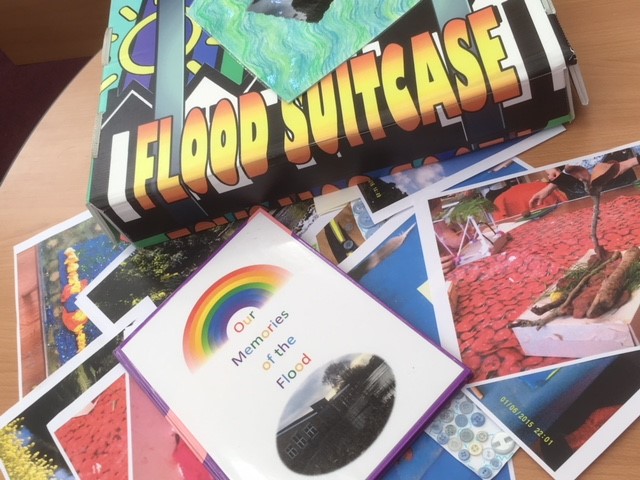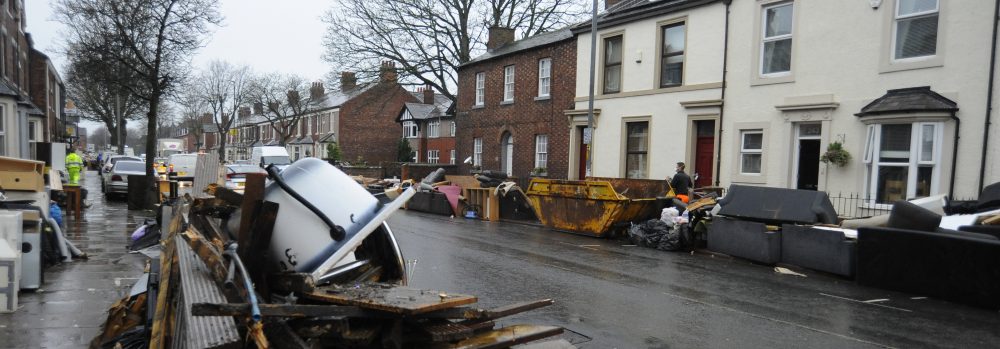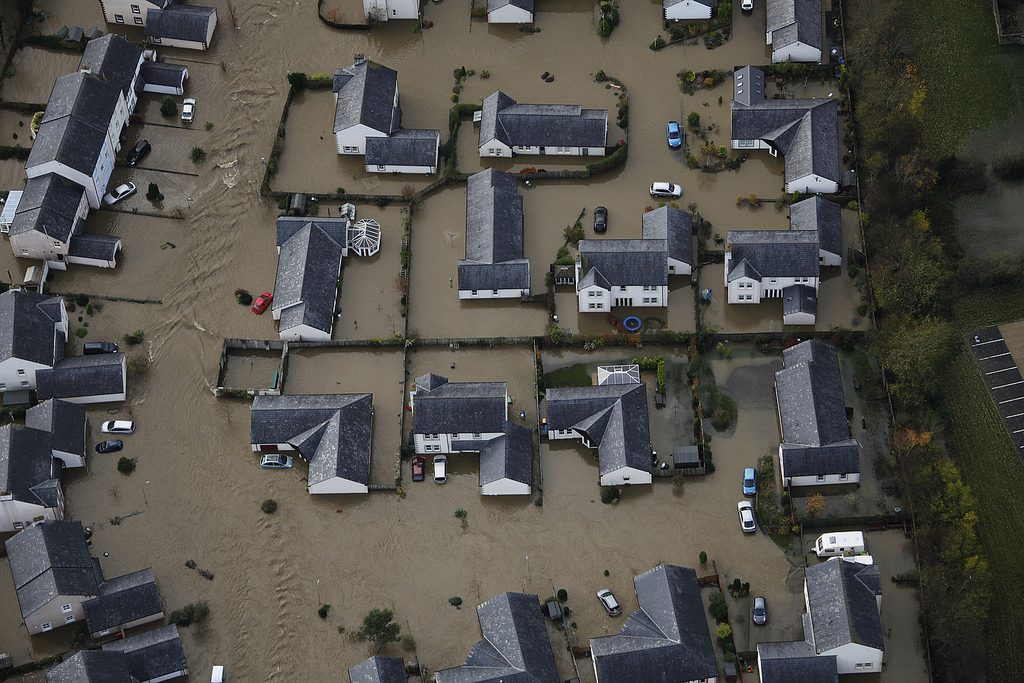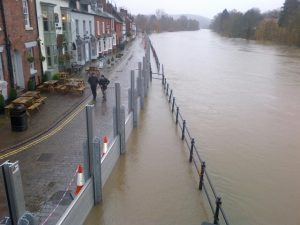Flood Recovery

Designing the Flood Suitcase
The Flood Suitcase is a workshop programme designed to support flood-affected children and young people and build more resilient schools and communities. The programme was developed from the creative methods used during the Children, Young People and Flooding Project and are designed to support children to talk about their experiences of flooding in a safe space.
Lancaster researchers piloted the Flood Suitcase programme with children and parents in Cumbria affected by the flooding caused by Storm Desmond in December 2015. A group of 18 primary school children and five parents took part in two creative workshops during the 2016 summer term. The group walked and took photos around the local flood-affected area and the workshops drew on drama games and exercises, sandplay and 3D modelling to help the children tell their story of the floods and share their experiences with others.
At the end of the workshops, the group was given its own ‘Flood Suitcase’ to keep in school, which the children had co-designed. This suitcase is a place to store photographs and other items which evoke memories of the flood and the recovery process. It also provides a focus for discussing flooding in school and opening a dialogue about community flood awareness and resilience building.
The Flood Suitcase pilot project ended with evaluation sessions with the children, parents and staff. A number of the children talked about how the workshops had been both fun and helpful and they had lots of ideas about how to continue using the school’s Flood Suitcase!
Following this pilot, the research team ran the Flood Suitcase project in 2017 at St. Michael’s on Wyre C.E. Primary School in Lancashire and wrote a short case study about this. During both projects, the team worked alongside staff from the children’s charity, Barnardo’s, training them in the use of the Flood Suitcase.

Some of the resources the children saved in their school Flood Suitcase
Barnardo’s have since run the Flood Suitcase programme successfully in three primary schools in Cumbria. The children who took part in this work with Barnardo’s reported that the project had helped them to better understand flooding and what action to take when there is the risk of a flood. Many said how much they had enjoyed the work and that they wanted to learn more about flooding.

The workshop facilitator’s Flood Suitcase
If you are interested in the Flood Suitcase workshop programme for your school or youth group, please contact us at:
Please reference as: Flooding – a social impact archive, Lancaster University


